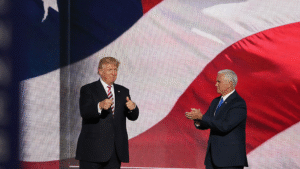
UK Grocery Inflation Eases to 5% in August 2025
UK grocery inflation eases to 5% in August 2025, showing slight relief. Consumers shift to value shopping as branded items rise and dining out declines.

Loud leaders once ruled the boardroom. Charisma was currency. Big talk drove big valuations. But 2025 has flipped the script — and quietly, low-ego CEOs are winning.
Not with bombast. With calm. Not by dominating. By listening.
The Fall of the “Alpha” Archetype
Once upon a time, founders were expected to be mavericks. Steve Jobs, Elon Musk, and Jeff Bezos were the poster children for aggressive ambition. But that narrative—all swagger, no humility—is beginning to collapse under the weight of its consequences.
Toxic work environments. Leadership churn. Founder cults imploding under scrutiny. Investors and employees are over it. They’ve seen what ego costs.
Today, low-ego leadership isn’t just respected — it’s rewarded.
What Quiet Power Looks Like at the Top
Low-ego CEOs don’t fight to be the smartest in the room — they build rooms where others get smarter.
They don’t conflate decisiveness with arrogance. They make hard calls with soft words. They don’t need credit. They want clarity.
Take Tim Cook. His rise wasn’t meteoric. It was methodical. He built quiet trust, not loud headlines. And Apple became the first $3 trillion company under his understated stewardship.
Or consider Arvind Krishna at IBM. While competitors chased press releases, he focused on disciplined transformation—a calm operator navigating chaos.
These aren’t exceptions — they’re signals of a deeper trend.
The Research Is Brutal — And Clear
A McKinsey meta-analysis in early 2025 found that CEOs who scored lowest on self-promotion but highest on team empowerment grew shareholder value 17% faster over a 3-year window.
In a Stanford study of 400 board interviews, 68% of directors said they now prefer “low-ego operators” over “visionary disruptors”—unless the latter show self-awareness.
The market has spoken. Quiet confidence signals long-term competence.
Why Low-Ego Wins in Hybrid Chaos
When everyone’s remote, leading with volume doesn’t scale. You can’t dominate Zoom. But you can listen. You can write clearly. You can signal stability when Slack threads spiral.
In fact, companies led by quiet CEOs tend to exhibit lower employee anxiety scores, especially in distributed teams. People trust what feels grounded, not reactive.
In 2025, psychological safety starts with a leadership tone: “This isn’t about me.”
The Operating System of Quiet CEOs
So, what are these leaders doing differently?
They ask more than they assert. Silence is not awkward to them — it’s strategic.
They avoid founder syndrome. They regularly hand off the spotlight and decision rights.
They build deep benches because they don’t fear being outshined.
They rarely speak in absolutes. Flexibility wins trust faster than certainty.
They act like long-term stewards, not short-term icons.
What Boards Are Quietly Prioritizing
The smartest boards in 2025 are no longer seduced by pitch decks filled with charisma. They’re asking: Can this CEO scale with the company? Or are we just hiring a persona?
CEOs who can scale humility are more durable than those who only scale ambition.
And that might be the most underrated growth hack in business right now.

UK grocery inflation eases to 5% in August 2025, showing slight relief. Consumers shift to value shopping as branded items rise and dining out declines.

Zelenskiy–Trump summit boosts markets as equities rise and the dollar steadies amid growing peace hopes. Investors await Fed insights at Jackson Hole for further direction.

Statistics Canada is investigating an accidental early release of June manufacturing data, raising concerns over data governance and market integrity. The agency has launched an internal review to strengthen its publishing protocols.

Investor confidence in France is deteriorating as political gridlock and budgetary uncertainty deepen.

June 09, 2025: Canada will host the 50th G7 Summit from June 15 to 17 in Kananaskis, Alberta, amid heightened global tensions and economic rifts.

May 30, 2025: Canada’s economy expanded at an annualized rate of 2.2% in the first quarter of 2025, outperforming the market forecast of 1.7%.

At seventeen, Professor Richard Rose stepped into a world few adults dare to navigate: the world of children fractured by trauma. He wasn’t a clinician then, nor a scholar. He was simply a young man with a heart tuned to the quiet ache of others.

Following a distinguished Law Enforcement career Joe McGee founded The Securitatem Group to provide contemporary global operational specialist security and specialist security training products and services for private clients, corporate organisations, and Government bodies. They deliver a wide range of services, including complete end-to-end protection packages, close protection, residential security, protection drivers, and online and physical installations. They provide covert and overt investigations and specialist surveillance services with a Broad range of weapons and tactical-based training, including conflict management, risk and threat management, tactical training, tactical medicine, and command and control training.

Jay Wright, CEO and Co-Owner of Virgin Wines infectious energy, enthusiasm, passion and drive has been instrumental in creating an environment that encourages talent to thrive and a culture that puts the customer at the very heart of every decision-making process.

Fabio de Concilio is the visionary CEO & Chairman of the Board at Farmacosmo, a leading organization dedicated to mental health and community support services. With a deep commitment to identifying and meeting customer needs, Fabio ensures that high standards are maintained across the board.

Leave us a message
Subscribe
Fill the form our team will contact you
Advertise with us
Fill the form our team will contact you